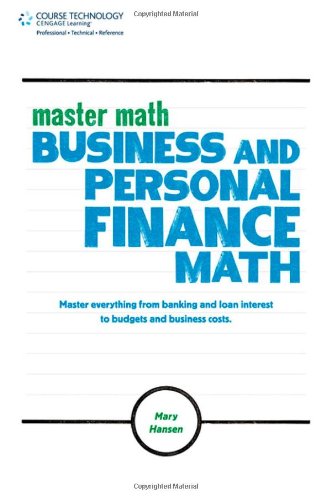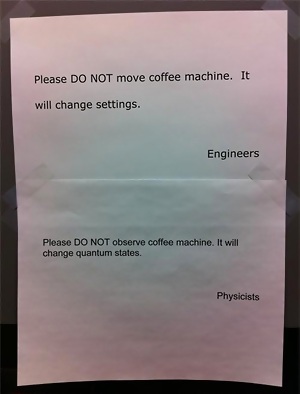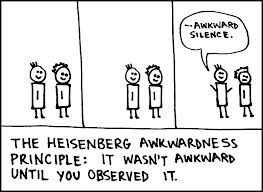I’m finishing up teaching an undergraduate course on Personal Finance this month, for which I find the assigned textbook totally useless, so I am on a quest to come up with a useful book to recommend for students as well as Bankers Anonymous readers.
What’s useful
The most impressive strength of Master Math: Business and Personal Finance Math by Mary Hansen is that it cuts out all the (mostly) banal ‘advice’ of a personal finance book, and concentrates instead on how to do the calculations. The math level never rises beyond algebra, which frankly is all anyone needs to know, in order to competently manage their personal or small business finances.
I find this a useful guide for a ‘Do-It-Yourselfer,’ or a person intent on learning exactly how car loan companies calculate APR vs. APY, or insurance companies quote term life insurance. A CFO for a small business or non-profit would also likely benefit from this useful introductory reference.
I’ve frequently paid but never personally calculated FICA taxes, for example, and it’s somewhat satisfying to learn how straightforward the math is. I have personally prepared business balance sheets and budgets, debt to equity ratios, and tracked profitability, but the straightforward presentation would be useful to others who have not done so before, but who need to learn.
What’s missing
Missing from Master Math, however, is my personal pet project: Understanding discounted cashflows and compound interest – the keys to good personal finance decisions. While the author presents a ‘compound interest’ table and defines the term (in contradistinction to simple interest), a table does not really cut it.
The limitations of print media for personal finance math
Reading the book this week has inspired a new thought, however, of which I’m increasingly convinced.
Personal finance and small business math, while not complicated, requires fluency with a spreadsheet program like Excel.
Master Math offers good, but somewhat convoluted algebraic formulas to calculate answers. In print, the author cannot show the dynamic changes in personal finance outcomes from changes in variables.
Properly set up in a spreadsheet like Excel, by contrast, a change in loan interest rate, for example, alters every monthly payment as well as the total cost of a loan. A small change in automatic monthly withholding, for example, changes everything when it comes to long-term retirement savings. Only by seeing the dynamic effects, I think, can we understand what control we can have over personal financial decisions and outcomes.
What is the right media?
I know Khan Academy has changed everything when it comes to math pedagogy. Although I enjoyed Master Math, I’m also sure personal and small business math has to be taught, and learned, through a combination of video, practice problem sets, and acquired fluency with Excel. Static text on a page isn’t enough.
This is something I’d like to work on over the next few years.
Please see related post: All Bankers Anonymous Book Reviews in one place.
Post read (5586) times.




